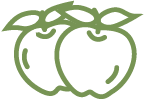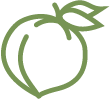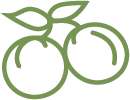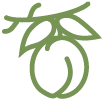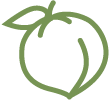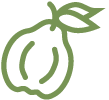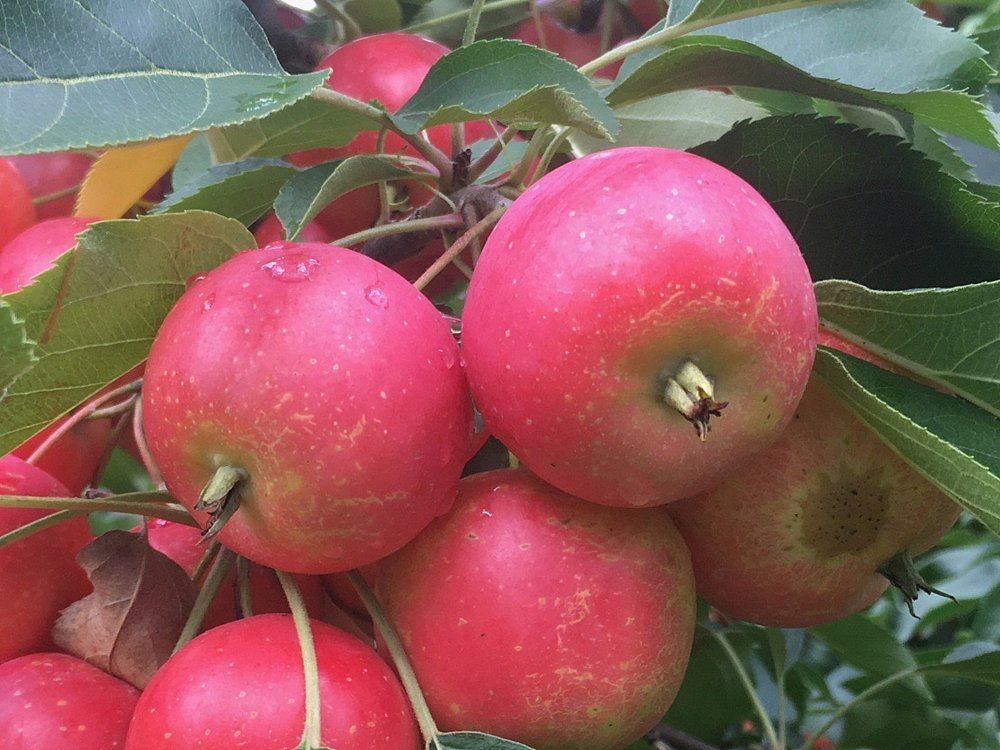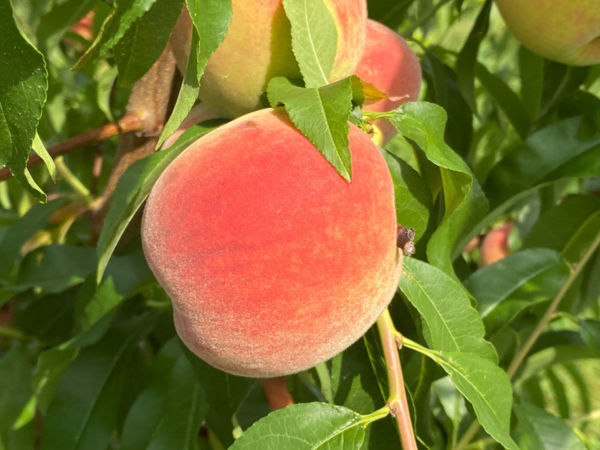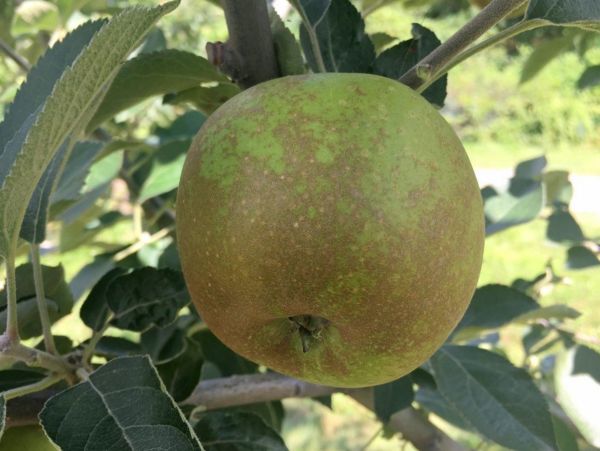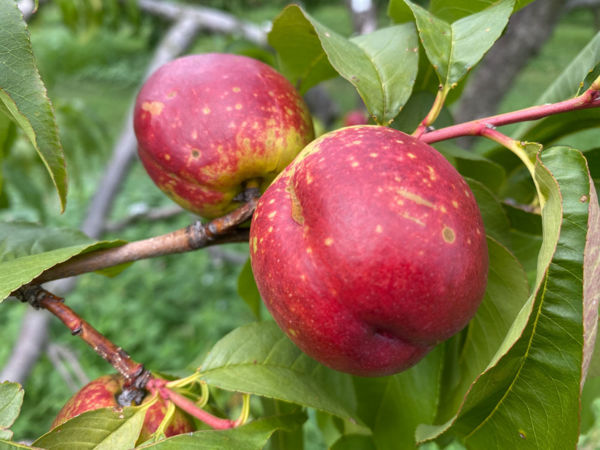An attractive, highly disease-resistant apple, ideal for organic growers.
Virginia Crab Apple Scionwood (Spring 2024)
An American heirloom and one of the best cider crabapples. Also known as Hewe's Crab, Hugh's Crab, Hughes Crab.
Virginia Crab, aka Hewe's, is a vigorous, productive, healthy tree. Extremely cold hardy, it was once commonly used as a rootstock as far north as Maine. While this tree is more often grown for cider than as an ornamental, the midseason bloom is long lasting and makes this tree an excellent pollenizer. It is susceptible to fireblight and it will need to be thinned to maintain annual bearing.
Virginia Crab is one of the oldest and best American cider crabapples. The fruit is small, light green blushed with a pinkish red and it hangs on a long, slender stem. It yields a juice that is remarkably clear, fermenting to a full-bodied, biscuity cider that carries notes of cinammon. The apple has won high praise from cider makers since 1817, when William Coxe first described the "sweet and highly flavored" juice. Today, Albemarle Cider Works writes: "Our first reserve cider, Virginia Hewes Crab has a complexity rarely found in single varietals. Very balanced, with a bold body, this cider is floral and intense. It pairs well with sausage as well as nutty and mushroom flavors. 10% ABV."
This apple was a favorite of both George Washington and Thomas Jefferson, who liked his Hewe's blended with Golden Wilding. It remained one of America's favorite cider apples until Prohibition destroyed the cider industry in 1919. Unsuitable for fresh eating, Virginia Crab became a very rare tree until the modern cider revival, which has renewed interest in traditional varieties and methods. Fortunately, enough trees remained to provide material for new orchards. Virginia Crab has been added to the Slow Food Foundation's Ark of Taste, where a more detailed history of the apple can be read.
Volume Pricing
| Quantity | Virginia Crab Apple Scion |
|---|---|
| 1 | $12.00 |
| 2-5 | $7.00 |
| 6-10 | $6.00 |
| 11-99 | $5.00 |
| 100+ | $4.00 |
The Fruit
Fruit Type
Category: Apple
Subcategory:
Crabapple, Heirloom, Cider, Hot-Climate
Fruit Uses & Storage
Uses: cider
Cider classification: bittersharp
Storage duration: (approximate, depending on storage conditions)
Fruit Appearance
Skin color: red
Flesh color: white
Fruit Origins
Parentage: unknown
Origin: Virginia
Introduced in: 1700s
Introduced by:
The Environment
Calendar & Geography
USDA zones: 3 - 8
Chill hours: Not yet determined
Ripening date: Sep 15 (approximate, in New York State) + 0 days after McIntosh
Diseases & Pests
glossary
Fireblight: Susceptible
Pollination
Pollination Factors
glossary
Bloom group: 3
Is it self-fertile? N
Is it fertile? Y
Ploidy: Diploid
Pollination Partners
This table shows the first few results from a full search for pollenizers of Virginia Crab Apple. Please see our Pollenizer Search to run other queries and read how the application uses various factors. Also read more about fruit tree pollination.
| Tree | Currently in Stock |
|---|---|
| Florina Apple | 0 |
| Porter's Perfection Apple | 0 |
| Elstar Apple | 0 |
| Rubinette Apple | 0 |
| St. Edmund's Russet Apple | 0 |
| Spitzenburg Esopus Apple | 0 |
| Liberty Apple | 0 |
| Mother Apple | 0 |
| Binet Rouge Apple | 0 |
| Freyberg Apple | 0 |
| Bramtot Apple | 0 |
See all pollination matches for Virginia Crab Apple
Featured Products
A few things we're loving right now...
A full-flavored, freestone white peach.
One of America's oldest apples, good for storage, baking, and cider.
A widely-grown, large, yellow-fleshed nectarine.

